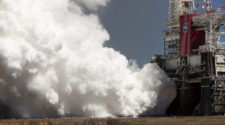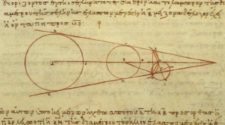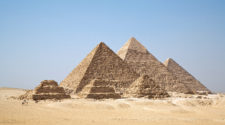
Students selected for a National Aeronautics and Space Administration (NASA) summer program have continued conducting research in 2020, despite the COVID-19 pandemic grounding their flight plans.
NASA, which is responsible for the U.S. government’s civilian space program, selects several dozen college students each year for internships with its Student Airborne Research Program (SARP). Most summers the program, started in 2009, meets at the University of California, Irvine and includes flying on research aircraft.
“This year with COVID-19 travel and social distancing restrictions in place, SARP might be grounded but the internship continues,” NASA said in a May 7 statement.
Known for sending astronauts to the Moon and now preparing for exploration of Mars, NASA seeks to expand knowledge for the benefit of humanity with its missions of discovery.
The 28 students selected for the airborne research program have been working from home and collaborating with NASA scientists.
In April, NASA sent out nearly 1,000 air canisters — 24 to each of the undergraduate interns across the U.S. — to collect samples of air pollution during various stages of COVID-19 closures in their state.
Interns took air samples at the peak of stay-at-home orders, when emissions were likely the lowest, and again as states reopened. Interns planned to send the samples back to a laboratory at the University of California, Irvine for analysis of nearly 100 compounds in the atmosphere.
Students also work with NASA scientists to track changes in emissions as human activity increased after quarantines ended and can compare samples taken in 2020 to data collected by prior SARP participants.
The air samples will provide a look at how changes in human activity during the COVID-19 pandemic affected air pollution levels.



